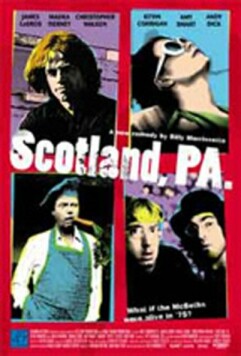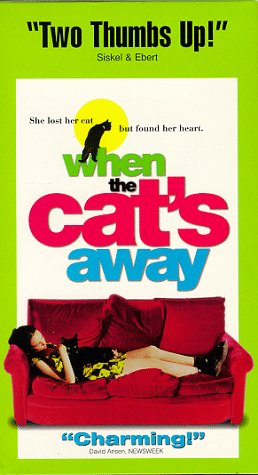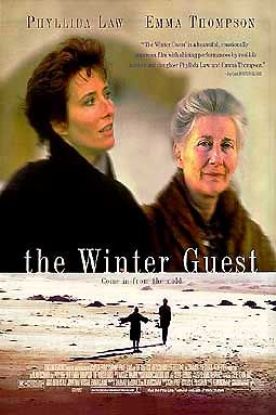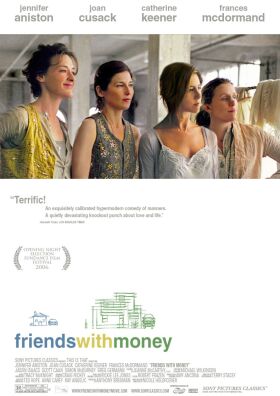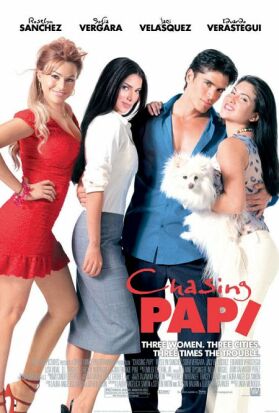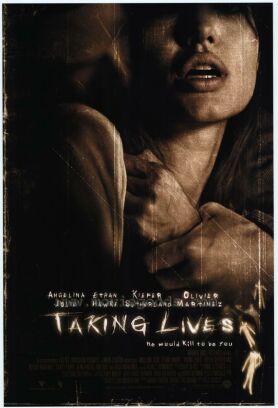Scotland, PA
Billy Morrissette’s hilarious up-dating of Macbeth, called
Scotland PA, is to Shakespeare as P.D.Q. Bach is to Bach. In other words,
it’s nothing to do with real Shakespeare, but it is funny. And to get the
jokes it helps to know a little about Shakespeare’s play. Filmed in Nova
Scotia, which doesn’t look much like Pennsylvania at all, the movie
centers around Duncan’s Diner, a fast-food joint in Scotland, Pa. in 1972,
which started out as a doughnut shop (Duncan’s Do-nuts), but which its
proprietor, Norm Duncan (James Rebhorn), has expanded into a new full-service,
burgers-and-ice cream, fast food joint. When his cook, “Mac” McBeth
(James LeGros) tells Norm that his manager, Doug McKenna (Josh Pais) has been
dipping into the till, Norm fires Doug, making Mac his assistant manager. He
even listens seriously to Mac’s suggestions for improving the
restaurant.
But Mac’s wife, Pat McBeth (Maura Tierney), feels insulted that
Mac’s reward is not greater. Believing that Mac’s ideas for
expansion — including a French-fry truck and a revolutionary new
drive-through window with microphones — can make them both rich if Norm is
out of the way, she persuades Mac to kill him with an unerring sense of his
susceptibility to pop psychobabble. “We’re not bad people, Mac; we’re
just underachievers who have to make up for lost time. Don’t you think you
deserve it Mac?” The scenes of Norm’s murder are among the funniest
things in the picture and signify that, whatever may be its resemblances to
Macbeth, the tragic sense of these events is not among them. Norm goes
face down in the deep fat fryer, and a gout of hot grease splashes onto
Pat’s hand while Mac is opening the safe. She will never subsequently be
able to believe that the sore has gone away.
Suspicion for the murder at first falls on Norm’s spoiled,
rock-musician son, Malcolm (Tom Guiry), especially when he sells the restaurant
on very favorable terms to Mac and Pat and goes off on tour with his band,
leaving his younger brother Donald (Geoff Dunsworth) at home to discover that he
is gay. Mac’s friend, Anthony (Banko) Banconi (Kevin Corrigan), knows more
than he is saying, and when, with the help of the stolen money, Mac and Pat are
successful at turning Duncan’s Diner into a new, glitzy McBeth’s,
complete with familiar giant arches, Banko gets the job of driving the
French-fry truck. Until, that is, Mac decides that he poses too great a threat
to the new rustic retreat and life of affluence lived by “The
McBeths.” But local police Lieutenant Ernie McDuff (Christopher Walken), a
vegetarian who listens to a 70s-style motivational monologues on his car’s
tape-player (“Tomorrow is tomorrow; tomorrow is not today. Today is who I
am”), is soon on the case.
Leaving aside for the moment the film’s conversion of tragedy into a
very special kind of comedy, parasitic upon the tragedy it burlesques, the
difference from Shakespeare (who gets a story credit) is that without the moral
and social elevation of the main characters there is no sense of the special
evil involved in the corruption of the state and the monarchy. This is not an
unimportant detail and could in itself be a constructive commentary on
Shakespeare if only because it shows that what is a tragedy when it concerns
matters of state effortlessly becomes a comedy when translated into a battle
over a burger joint in rural Pennsylvania.
A lot of the comedy also derives from the period setting. The three witches,
for example, are hippies (one of them played by Timothy “Speed”
Levitch from The Cruise [q.v.]) who are sitting in a Ferris-wheel gondola
in a deserted amusement park, eating some kind of fast-food chicken, as Mac is
making his way home from the late shift at the diner. “Christ, I dropped
the chicken!” says one.
“The fowl was foul,” says another, and giggles
“And the fair was fair,” says a third. “My ass
hurts.” Their nonsensical chanting is seen as being drug-induced, and they
set the comic tone picked up by the garish clothes and haircuts, the
McBeths’ waterbed, the portraits of Richard Nixon on the walls of official
buildings, even a streaker in the final scene. Above all, there is the knowing
sensibility appealed to by making Donald homosexual with all the signs
known to us (love of musicals, for instance, or interest in male athletes in
suggestive poses) but still unrecognizable to the innocents of 1972!
My favorite line in the picture comes as the McBeths and their flunkies are
taking counsel about how to deal with McDuff’s increasing suspicions of
them. “I’ve got it,” says someone. “Mac should kill
Mcduff’s entire family. That would stop him.”
“About a thousand years ago, maybe,” says Mac. “You can’t
go around killing everybody today.” And the idea is dropped. It is another
reminder in the body of the film of the distance separating us from
Shakespeare’s world — and that the only thing to be done about it is
to laugh.
Discover more from James Bowman
Subscribe to get the latest posts to your email.

